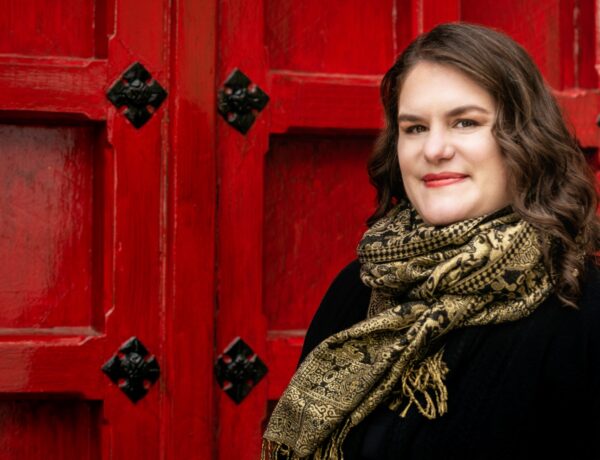Gary Born is a renowned international arbitration and litigation expert, with over 20 years of experience and numerous accolades to his name.
In addition to his professional achievements, Born has now ventured into the world of fiction with his debut novel The File. The book follows Sara West, a botany student, as she uncovers classified documents from WWII and becomes embroiled in a dangerous pursuit across Africa, the Middle East, and Europe.
Each week, we publish a new daily writing routine from a famous author. Subscribe to our newsletter so you don’t miss out!
For those who may not be familiar with your work, can you tell us a little bit about your background and writing career to date?
I am a lawyer – an international lawyer – with clients and cases almost everywhere in the world. I specialize in international disputes, often occurring in challenging parts of the world – a little like the countries in which my thriller, The File, is set (Uganda, Libya, Italy).
I have published a number of books on international law over the past 25 years, but The File is my first fiction work. The settings for The File come from both my work as a lawyer, but also from earlier parts of my life, including growing up as an Army brat on U.S. military bases all over Europe, and later traveling overland across Africa as a university student.
Congratulations on the release of your debut novel. Can you tell us a bit about the story and the inspiration behind it?
Thanks so much. “The File” is a spy-thriller about a young woman – Sara West, a 32 year old graduate student in botany – who gets thrust into circumstances she never imagined. While she is on a research expedition with her father and university colleagues in the Rwenzori Mountains (in Central Africa), Sara checks upon the wreckage of a crashed bomber from World War II.
Inside the Nazi plane, which has been hidden for nearly 75 years, Sara discovers a metal file, filled with documents. The papers reveal the location of billions of dollars which were deposited by the Nazis in the final days of WWII in secret numbered accounts in Swiss private banks. The files on the plane also contain the identities of the Nazis’ most important foreign spies, including the Nazi spies and supporters in the United States.
Two very different, but also very evil, men learn of Sara’s discovery almost immediately: Ivan Petronov, a former KGB agent who has been searching for the Nazi bank accounts and the money deposited in them for years, and Franklin Kerrington III, the CIA’s Deputy Director, whose family’s secret spying on behalf of the Nazis is documented by the papers in the file. Both Petronov and Kerrington immediately send teams of hitmen to Africa to track down Sara and the file – Petronov, so he can access the Nazis’ billions of dollars in Swiss banks and Kerrington, so he can make sure his family’s traitorous past remains hidden.
Petronov’s Russian mercenaries arrive first, and then find and massacre Sara’s father and colleagues. By luck, Sara escapes and flees into the jungle, with the Nazi documents from the file in her backpack, with the Russian hitmen in close pursuit. That is when Sara turns out to be different from what most of us would imagine. Using skills that she learned on countless earlier research expeditions with her father in similar jungles around the world, Sara manages to elude Petronov and his special forces team.
After fleeing for days, she decides to turn the tables and hunt her pursuers – with frighteningly effective results. Eventually, however, the Russians trap Sara in a remote jungle town, but Petronov’s men are themselves then attacked by Kerrington’s team of special ops agents. A young, ex-CIA operative, Jeb Fisher, is ordered to kill West, but before he can carry out the order, he discovers Kerrington’s evil past, and, at pretty much the same time, realizes his attraction to Sara.
Fisher and Sara flee in a Land Rover, and then hijack a cargo plane from a nearby UN airbase, flying north towards Europe, before running out of fuel and parachuting into the Libyan desert. The two ambush a Libyan militia jeep, and then make their way to the Mediterranean Sea, where they board a ship smuggling refugees into Italy.
Sara and Fisher then head north towards Switzerland, with Sara intent on uncovering the secrets of the secret Nazi bank accounts and avenging the killing of her father and friends. Still pursued by Kerrington and a new team of Petronov’s mercenaries, Sara and Fisher make their way to Zurich, where they plan a bloody showdown at the Swiss bank where the Nazi deposits are held. For the finale, you will need to read the book to find out what happens – but it’s not necessarily what you would think.
You have authored several notable works on international dispute resolution, including the pre-eminent treatise “International Commercial Arbitration”. How has your experience as a legal author influenced your approach to writing fiction?
Many thanks. Legal writing is a completely different genre and exercise than fiction writing. Legal writing is tied tightly to the statutes, court decisions and other sources of law; there is not much room for pure creativity or imagination.
In contrast, fiction writing is the opposite. It isn’t bound by either sources of law or most other things. Instead, imagination and creativity are at a premium – with only the bounds of believability. That is both exhilarating, because of the freedom, and daunting, because the author is faced with a blank page on which literally almost anything can be written.
My work as an international arbitration lawyer sometimes involves disputes between countries over their borders (and other things). Those cases require learning the geography and history of the region and its people. That part of legal writing has some similarities to fiction-writing. In those cases, you need to understand the people – their history, customs, politics and religion – the same way you need to try and understand people, places and settings in fiction writing.
What you write in a spy thriller isn’t “true,” but for it to ring “true” and to have meaning for readers it needs to take place in an authentic setting and to involve “true” characters. In that sense, the writing that lawyers do, at least in some cases, can be very close to what a novelist does.
How did you approach the challenge of writing a spy adventure novel while balancing accuracy in regards to international law and geography?
I was careful to maintain accuracy to historical, geographical and commercial matters. The descriptions of Berlin in the last days of World War II, and of the German aircraft at the time, are historically authentic; the secret Nazi files and bank accounts have sometimes been rumored (but never found), but they are well within the bounds of credibility.
Stashes of Nazi art and bullion and other things makes that clear. The descriptions of the Ruwenzori Mountains, Sahara Desert, Italian countryside and Swiss cities are also accurate – I wrote about those places because I knew each of them from personal experience. And the Swiss bank system also stays close to historical and commercial realities.
Do you struggle to stay focused while writing? You’re not alone! That’s why Famous Writing Routines recommends Freedom – the ultimate app and website blocker for Mac, Windows, Android, iOS, and Chrome. With over 2.5 million users, Freedom helps writers stay on task and avoid distractions. Get started for free today and reclaim your productivity!
Your main character, Sara West, is an ordinary American woman, studying botany at a graduate level, but not rich or famous. Can you share what makes her so intriguing and what you hope readers will gain from her story?
Sara West is intriguing exactly because she seems so ordinary at first, and certainly considers herself to be ordinary – definitely not spy thriller material. But, unexpectedly, she is thrust into the midst of a thriller – fleeing through the African jungle from two teams of special forces hitmen, then teaming up with an ex-CIA operative who she doesn’t trust (and who doesn’t trust her).
Sara is interesting and intriguing because of how she reacts to these new circumstances – first, fleeing in terror and wanting to give up, but then gradually adapting and eventually turning the tables on both her pursuers and, occasionally, Jeb Fisher, the operative who accompanies her.
Sara holds something for all of us. A normal woman, confronted with extraordinary circumstances, rises to those challenges through force of will and determination. She turns normal and ordinary into extraordinary, with nobody but herself to rely upon. That is a universal lesson.
Can you walk us through your creative process and daily habits as a writer? What does a typical writing day look like for you?
Oddly, I used very long plane trips for writing. I wrote in long-hand, in old school notebooks, crossing things out as I went along to produce a first draft. Some trips I would do just a chapter, or less; others I would finish half a dozen. But I kept adding as I went along, usually not going back and editing the long-hand manuscript until it had been typed up.
Once the manuscript was more or less complete, I had it typed up, and then started editing – which continued for quite a while. The chapters shifted and morphed during this phase, sometimes getting dropped, sometimes combined and sometimes subdivided and expanded. I would usually work two or three hours a day, often in the evenings, during the editing phase. All told, I must have gone through some 30 or 35 drafts with substantial revisions to each successive draft.
You have been ranked as one of the world’s leading international arbitration practitioners for the past 20 years. How do you balance your writing career with your legal career?
It was a challenge, at times. But working on the book (The File) was always rejuvenating. After long hearings, in Singapore or Los Angeles or wherever, getting on a plane and entering Sara’s world again was energizing and exciting. Fiction writing takes very different skills and thinking than legal writing, so it was a relief to move from one to the other.
If you could have a conversation with an author throughout history about their writing routine and creative process, who would that person be and why?
That’s a great question. Several candidates – Homer, the blind, ancient Greek poet, who wrote classics (or, more accurately, recited classics) that had all the elements of a spy thriller. I would love to understand how he managed to construct plots, develop characters and maintain consistency, without pen and paper, much less computer applications for editing his work.
Doing so when he was blind makes it all the more extraordinary. Eugene O’Neill, whose extraordinary plays, like Long Day’s Journey into Night, are searing beyond words. I would like to ask how he found the levels of pain and despair that his works depict, as well as what he saw as positive or hopeful in his characters. And, because he is so different and varied, George R.R. Martin – in particular to talk about constructing the plots (and endless sub-plots) and developing the characters of The Game of Thrones and other works.
What have been some of your favorite reads recently?
Apart from International Arbitration: Resolving Cross-Border Disputes? Seriously, I re-read Game of Thrones recently, which I loved even more on this re-reading. I also enjoy poetry – especially more traditional works – Kipling, Frost, Yeats and others.
What does your current writing workspace look like?
For writing on a plane, it looks just like an aircraft seat. At home, my study has maps on the walls of different regions of Africa and the Middle East; they are all places where I have handled border disputes or other types of cases. I usually write at home with one or both of my Maine Coons curled up on my writing table. I am a bit of a night owl, so it will usually be dark outside, and warm and cozy inside.
Affiliate disclaimer: Some links on this website are affiliate links. We may earn a small commission if you make a purchase through these links, but only promote products we truly believe in. We disclose affiliate links and give honest reviews.



No Comments